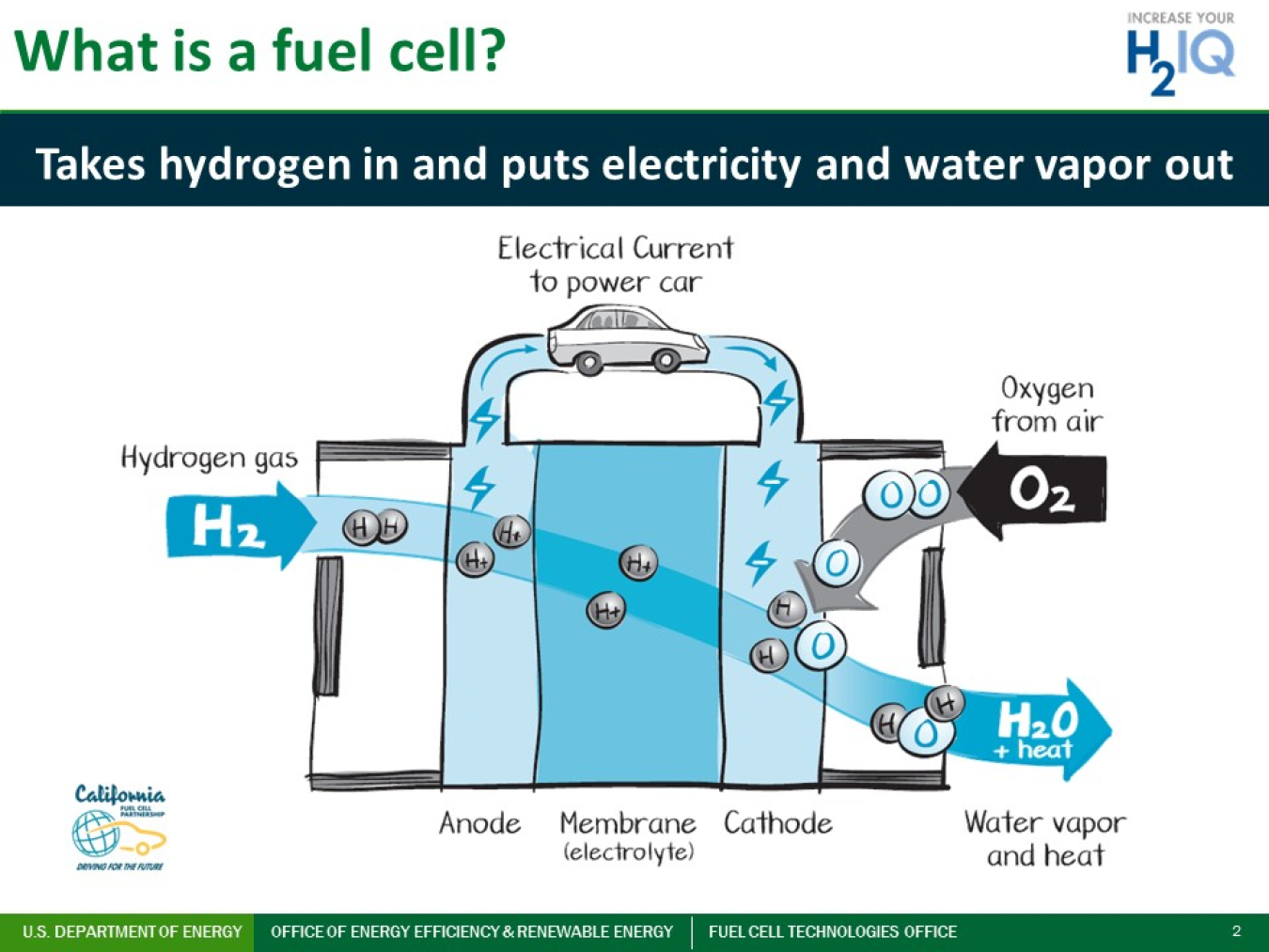Hydrogen and Fuel Cell Day will take place on October 8, 2019. Join us to raise awareness and celebrate advances in hydrogen & fuel cells.
September 23, 2019
Editor's note: This post was shared by the Office of Energy Efficiency and Renewable Energy's Fuel Cell Technologies Office.
The fifth Hydrogen and Fuel Cell Day will take place on October 8, 2019, and we hope you'll join the U.S. Department of Energy's (DOE's) Office of Energy Efficiency and Renewable Energy's Fuel Cell Technologies Office in raising awareness and celebrating advances in hydrogen and fuel cells.
Aptly chosen to represent hydrogen’s atomic weight of 1.008, DOE and stakeholders worldwide will be commemorating Hydrogen and Fuel Cell Day on October 8 with various activities and outreach events throughout the week.
Many of your efforts have brought us this far! Worldwide, there are now over 300,000 stationary fuel cells offering resilient power and over 12,000 fuel cell cars on the road, and interest in trucks and heavy-duty vehicles is ramping up.
In the United States, there are over 25,000 hydrogen fuel cell forklifts helping move merchandise at warehouses, and over 20 million hydrogen refuelings have taken place to support their operation just in the last few years. Large-scale hydrogen-use applications are gaining more momentum with the rollout of the world's first hydrogen trains and aircraft. Additionally, several global efforts have been made in the maritime sector.
While we've made significant progress as a community, the work doesn't end here. We need to continue working together to unlock the full potential of hydrogen and fuel cell technologies as part of our larger energy system. At DOE, we are doing this through our H2@Scale initiative, which focuses on affordable and reliable large-scale hydrogen generation, transport, storage, and utilization in the United States.
Realizing H2@Scale can have benefits across multiple energy sectors, including nuclear and renewables, as well as in industrial activities such as steel manufacturing. These and other applications are the focus of global initiatives that bring together government partners to accelerate progress, such as such as the International Partnership for Hydrogen and Fuel Cells in the Economy (IPHE).
As October 8 approaches, we invite you to explore some of the resources on our website and use them to increase awareness about how far hydrogen and fuel cells have come and what more needs to be done.
We encourage you to celebrate with us and offer some suggested activities:
- Get active on social media using #FuelCellsNow and #HydrogenNow.
- Share the knowledge by giving a hydrogen and fuel cells presentation in your community, classroom, or workplace. You can use the Increase Your H2IQ Training Resource to get you started.
- Encourage our next generation to get into STEM by having them map their hydrogen and fuel cells career using our hydrogen and fuel cells career map!
- Stay current with any global hydrogen and fuel cells activity happening that day by following @The_IPHE.
We hope you'll join us in spreading the word so that others can also learn why hydrogen and fuel cells are important to a more secure, clean, and resilient energy future.
To learn more about hydrogen and fuel cells, and the research and development work DOE supports to accelerate progress in this exciting technology, please visit our website.
Happy Hydrogen and Fuel Cell Day.

